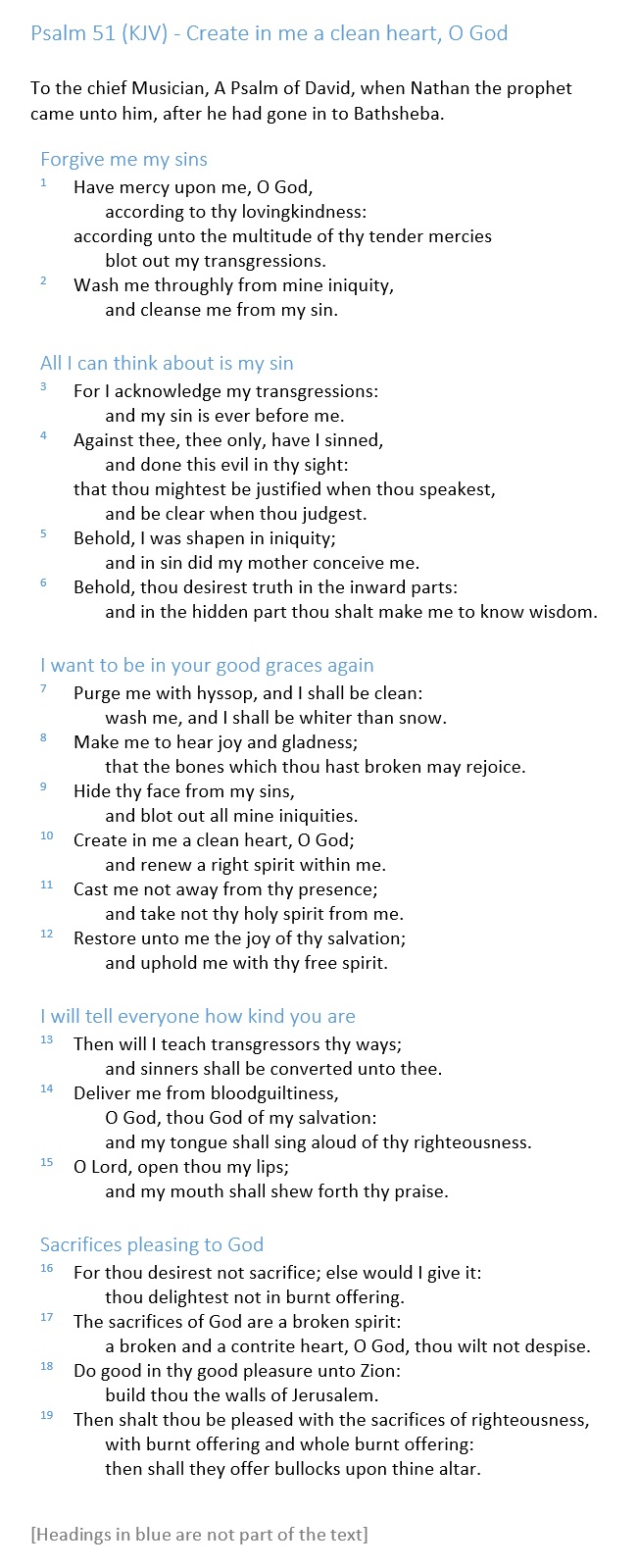In short
David is begging for mercy after he sinned egregiously with Bathsheba. (We know this is the theme because the Psalm itself tells us in the heading.)
Why it is important
It is superb in its ability to speak for us all when we have sinned and how we do (or should) feel.
I have always found it rather ironic that poems and songs that express the most universal truths come from a very specific event in the author’s life (yet songs that try to be generic will always fail to connect). If you have ever read the story behind the song “Amazing Grace,” you will know what I mean.
What is in this poem
I broke it into five sections, as shown in the picture.
There are some really classic lines in this, like:
- “Against you, you only, have I sinned” (v. 4)
- “Create in me a clean heart, O God” (v. 10)
- “The sacrifices of God are a broken spirit; a broken and contrite heart, O God, you will not despise (v. 17)”
The last section is tough. It seems out of place with the message, specifically verses 18-19. And apparently some are confused by the “build the walls” comment and think it must mean that there is a mistake somewhere. I personally am fine with that part – I feel it could very easily be figurative. Consider that Zion is “the city of David.”
Theology and doctrine
Here a few verses that can be interpreted to say something they do not.
VERSE 3, “my sin is ever before me.” Does this mean God will not forgive? Certainly, He does forgive. But repentance means that I cannot easily forget what I did.
VERSE 5, “in sin did my mother conceive me.” Does this confirm the Catholic teaching of Original Sin? No, I don’t think that is the intent here. First, I think there is the possibility of poetic hyperbole. Second, we are born into a sinful world.
VERSE 11, “take not your Holy Spirit from me.” This could be a lesson unto itself. Some brief thoughts to help with this: (1) David was designated to be king (and Saul was defrocked) by the giving (and surrendering) of the spirit of the LORD; (2) Jews understood that their breath (and life) was, like Adam, the gift of the LORD’s own breath; (3) don’t force New Testament doctrine on a Psalm – there may be a connection, but maybe not, too.


No responses yet